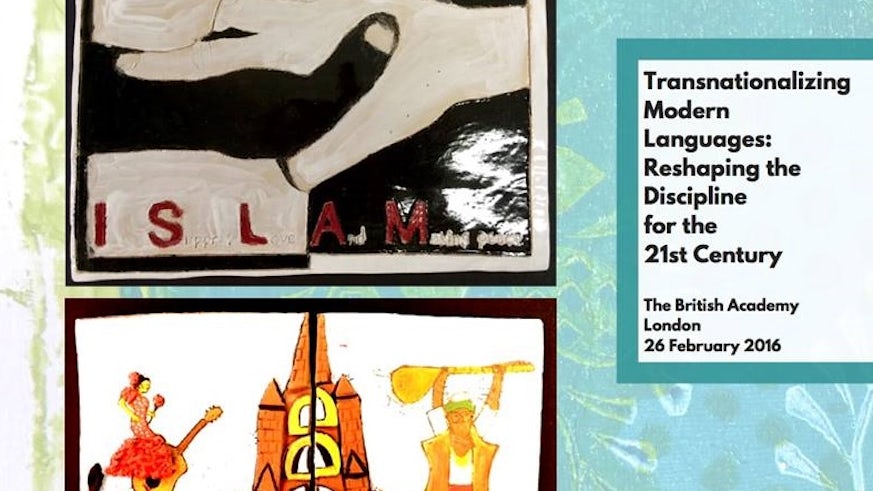School of Modern Languages present at British Academy event on mobility, identity and translation
4 March 2016

Loredana Polezzi, Professor of Translation Studies, spoke at The British Academy in February, to present the work of the ‘Transnationalizing Modern Languages: Mobility, Identity and Translation in Modern Italian Cultures’ project.
The project began in 2014 and investigates practices of linguistic and cultural interchange within communities and individuals, focusing on the 150-year history of Italy and its patterns of emigration and immigration.
The event, entitled ‘Reshaping the Discipline for the 21st Century’ presented the work that the project is accomplishing within Higher Education, within schools and within the wider community, providing a forum in which to discuss how the discipline of Modern Languages can be reshaped for the future and addressing such questions as: how do Modern Languages promote cultural as well as linguistic competences that are vital in an increasingly globalized world? How do university curricula articulate with the range of subjects that students study in schools? How do you encourage a nuanced and inclusive understanding of notions of translation within multicultural spaces and societies, increasingly characterised by multilingual practices?
Professor Polezzi introduced the event by speaking about the architecture of the project, the themes that it is addressing and the audiences with which it is engaging. Professor Polezzi’s research interests focus on the intersections between migration and translation. Within the project she also examines the relationship between language politics and policies.
The first session introduced by Jocelyn Wyburd, Chair of the University Council for Modern Languages and Derek Duncan of the University of St. Andrews presented the work of the project’s partnership with schools in Edinburgh. Chris Hume and Julie Philip, who both teach at Castlebrae Community High School, explored the variety of media through which the concept of translating cultures has been explored within the classroom. The presentations of Jenny Burns and Naomi Wells of the University of Warwick together with that of the writer Shirin Ramzanali Fazel went on to discuss the series of creative writing workshops that are taking place in the West Midlands which demonstrate how research in Modern Languages can be put into practice and dialogue with new audiences within the multicultural and multilingual environment surrounding the University.
The second session of the day looked at how languages and cultures are taught in Higher Education, at the nature and future of Modern Languages as a university discipline, and at students’ understanding of the value of the skill-sets with which the discipline equips them.
Charles Burdett of Bristol University discussed the thinking behind the forthcoming series of texts, Transnationalizing Modern Languages;, Li Wei (University College London) spoke about language learning in the twenty-first century and Charles Forsdick of the University of Liverpool and theme leader of the AHRC’s major initiative ‘Translating Cultures’ spoke about how the theme is impacting on the disciplinary field of Modern Languages.
The event was sold out and was distinguished by the quality of the discussion on how Modern Languages can develop in a world that is increasingly defined by mobility, multilingualism, and the pace of globalization.